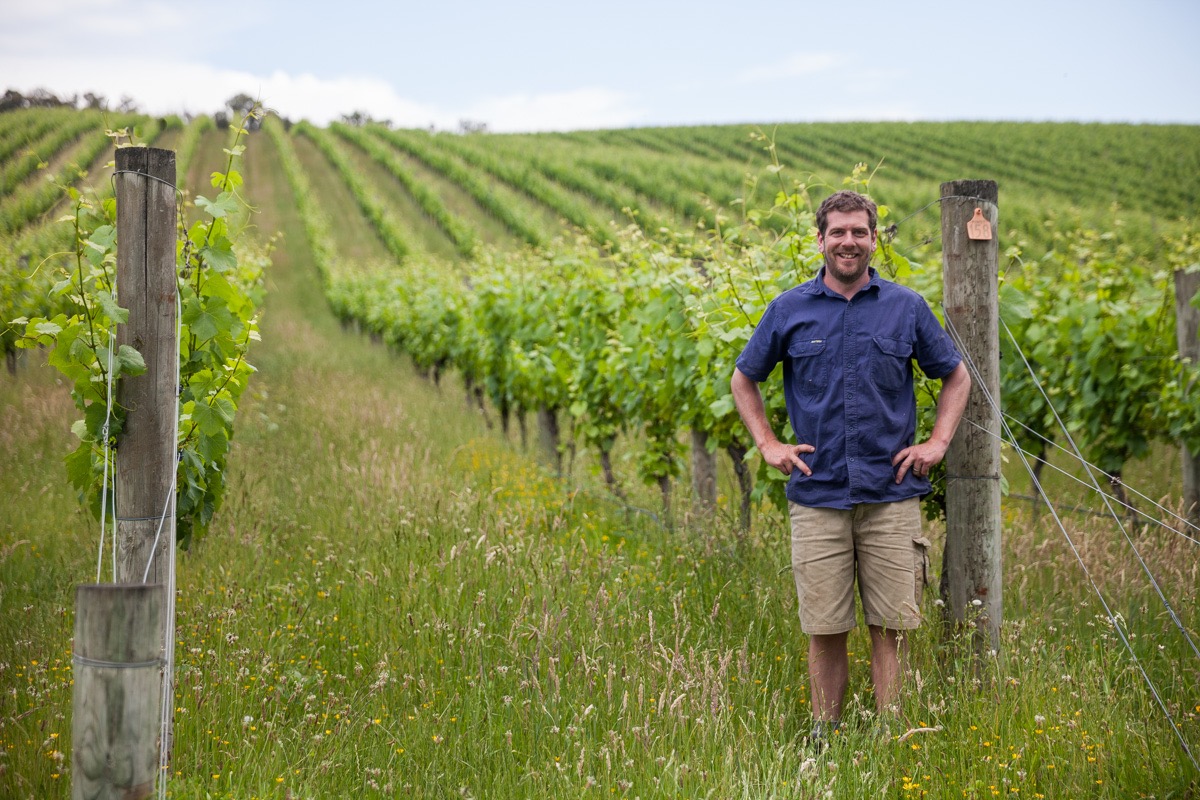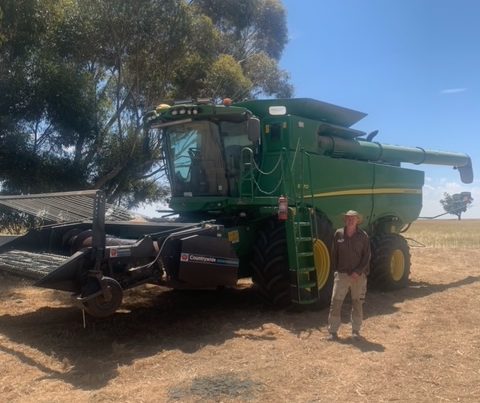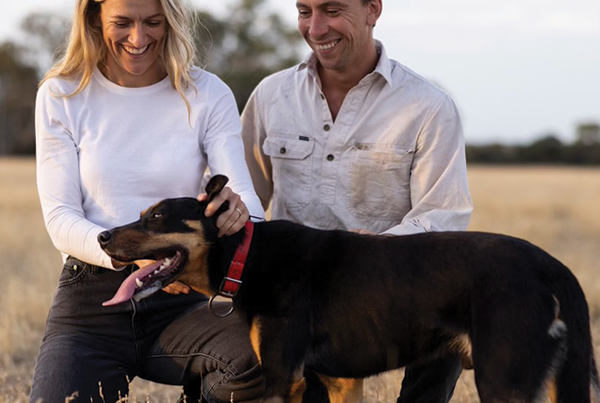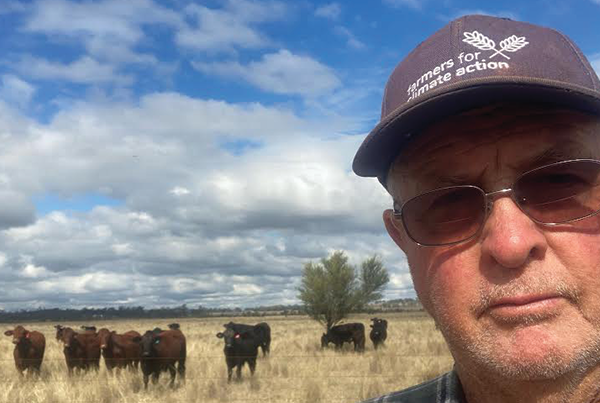At a glance
Who: Stuart Proud
What: 1100 acres, mixed farming; vineyards, winery, cattle pasture and remnant bushland. Property is called ‘thousand candles’
Where: Yarra Valley – Gruyere, Victoria
Can you tell us about your property?
I manage the vineyard and winery operations on the property. We have 60 acres under vine and process around 70 tonnes to make into wine. We have 3 full-time staff and 1 part timer in the Vineyard/Winery. The cattle operation has 1 full time manager and around 400 head of cattle. All grass fed. I have been in the industry for 25 years and the Yarra Valley since 2003. We have an average rainfall of 900mm. The vineyard was planted about 20 years ago. We look after the plantings using a biological farming approach. A wholistic style of management with a specific focus on soil health.
What first got you thinking about climate change?
It really hit home how bad things were getting back in the millennial drought, which culminated in the Black Saturday bushfires in 2009. Dams were empty, everything was tinder dry. It hardly ever rained and was always hot and windy in summer. I really had to think about strategies to manage through these tough times and for me, the answer came through soil health and the biological farming approach. It also made me realise how vulnerable we are and continuing to emit and pollute at the rate we do had to change. The climate affects us so greatly in many ways, not just as a farmer and we have the ability to reduce our footprints.
How has climate change impacted your farm business?
I think the huge amount of variability in weather, plus the number and frequency of extreme events we deal with certainly makes managing the business very tricky. There is no normal or average season any more ! We have to continually change and adapt which is becoming increasing difficult and expensive.
What are some of the climate-smart strategies you’ve been employing and how successful have they been?
A lot of the focus has been aimed at the soil health plus improving management techniques so the vines are better able to cope with the large fluctuations in the weather patterns. In turn, this has helped has the quality and yields. This has meant we have been able to sell at a higher price per tonne of grapes or per bottle of wine.
Do you use renewable energy on your farm? What are the benefits?
We are about to install solar on the winery/vineyard sheds before the upcoming harvest. Obviously this will help with power bills and decrease the reliance we have on grid energy which is powered by fossil fuels.
If you could send a message about climate change to the Federal Government (in 50 words or less) what would it be?
The time for talking is over. We need to speak via our actions. Fast. As a parent, a farmer and an Australian I don’t want to be explaining to the next generations why we didn’t do more to minimise our impact on the climate and our natural environments.







